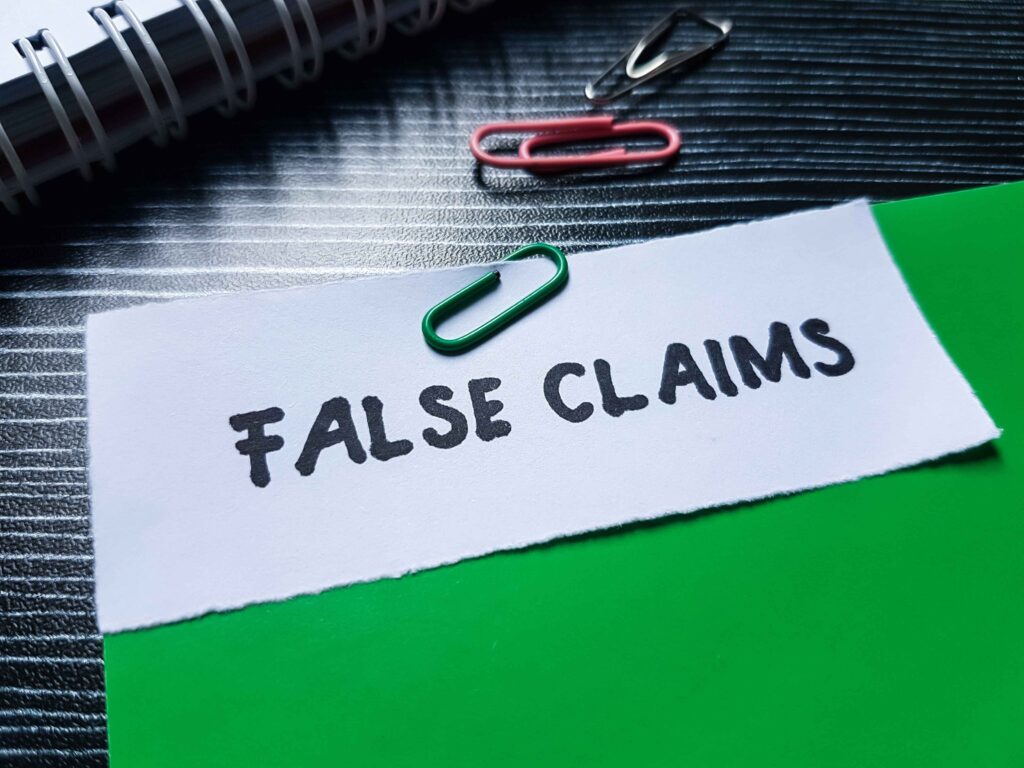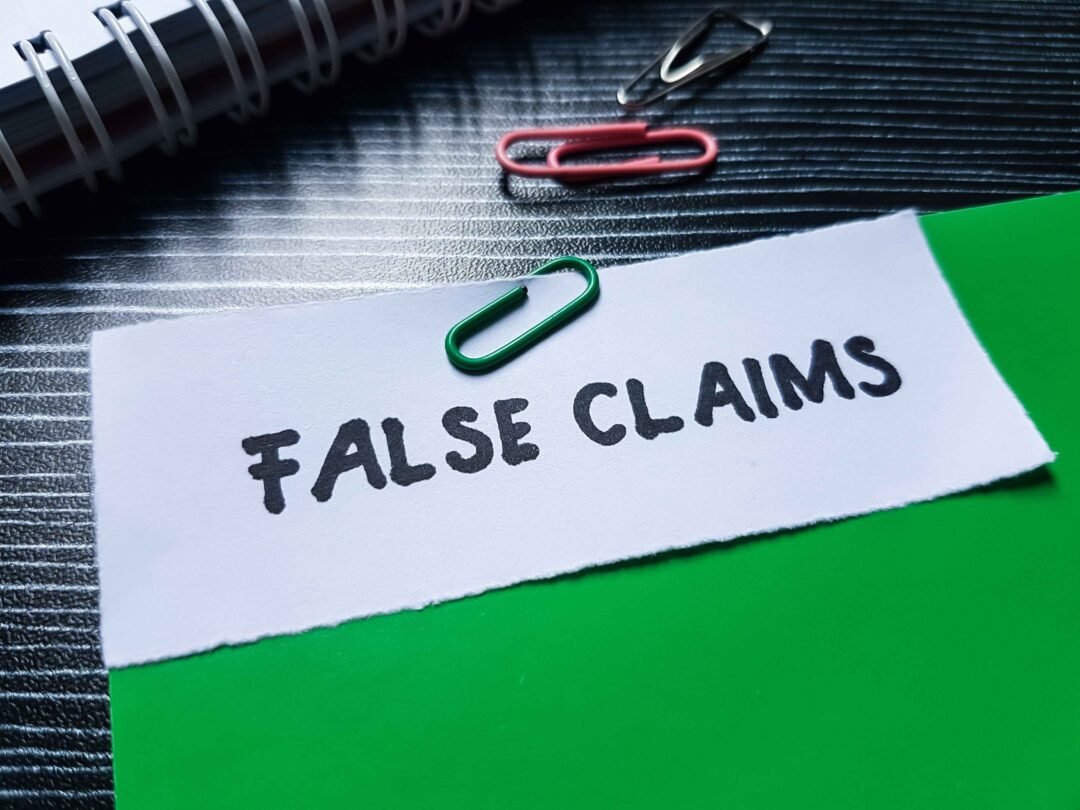
A Domestic Violence Restraining Order (DVRO) is a court-issued order designed to protect individuals from abuse or threats. It can be temporary (TRO) or permanent, depending on the case. Unfortunately, in contentious divorces or custody disputes, some may file false claims to gain advantage. These accusations can severely affect the accused, leading to custody loss, court-ordered programs, and damage to personal and professional life. Understanding both the purpose of a DVRO and the risks of false allegations is crucial. If wrongly accused, take immediate legal action to defend your rights and limit long-term harm.
Common Defenses Against False DVRO Claims
When facing false allegations of domestic violence, defending yourself in court is essential to avoid the damaging consequences that can arise from a DVRO. Several legal strategies can be employed to contest these allegations effectively. Below are some of the most common defenses:
1. Lack of Evidence
One of the most powerful defenses against a DVRO claim is the absence of concrete evidence. For an allegation of domestic violence to be valid, the accuser must provide evidence supporting their claims. Without physical evidence, such as medical records, photographs of injuries, or eyewitness testimonies, the case for a DVRO becomes significantly weaker. In these cases, the court may dismiss the case if the accuser cannot substantiate their allegations with sufficient proof.
2. Self-Defense
In some cases, the accused may assert that their actions were taken in self-defense rather than as intentional abuse. Under California law, individuals have the right to protect themselves from immediate harm. However, claiming self-defense is not an automatic shield against a Domestic Violence Restraining Order (DVRO).
To successfully assert this defense, the accused must present credible evidence demonstrating that they reasonably believed they were in imminent danger of harm and that their response was proportionate to the threat posed by the other party. Courts will carefully examine the context of the incident—including the severity of the threat, the necessity of the response, and whether less forceful alternatives were available. If the court finds the claim of self-defense credible and legally justified, it may determine that a DVRO is not warranted.
3. False Allegations
False accusations are another powerful defense. If there is a clear motive behind the accusation, such as a desire for revenge or an attempt to gain leverage in a divorce or custody dispute, the accused can challenge the accuser’s credibility. Scrutinizing the accuser’s statements for inconsistencies, contradictions, or fabrications can significantly undermine the validity of the DVRO claim.
Steps to Take Immediately After a False DVRO Claim
If you have been falsely accused of domestic violence and served with a Temporary Restraining Order (TRO), it is crucial to act swiftly and strategically. Your actions in the immediate aftermath will play a significant role in the success of your defense. Below are the critical steps you should take:
1. Cease Contact with the Accuser
The first and most important step is to immediately cease all communication with the individual who has made the false allegation. This includes both direct contact and indirect communication through third parties, social media, or messages. Continued contact, even if non-threatening, can be used as evidence against you, and violating the terms of the restraining order can lead to criminal charges.
2. Preserve and Gather Evidence
Collect any and all evidence that could support your defense. This may include text messages, emails, photos, social media posts, or any other form of communication that contradicts the accuser’s claims. Additionally, witness statements can be valuable. If anyone witnessed the alleged incident or can attest to the nature of your relationship with the accuser, ask them to provide written statements or testify on your behalf.
3. Seek Legal Counsel
Do not attempt to handle the situation alone. It is crucial to hire an experienced attorney who specializes in family law and domestic violence cases. Your attorney will help you navigate the legal complexities of the situation, advise you on how to respond to the TRO, and build a strong defense for the upcoming DVRO hearing. They can also help you avoid common mistakes that could harm your case.
Building Your Defense: Key Strategies
Once you have taken immediate steps to protect yourself, it’s essential to develop a well-structured defense to counter a false DVRO claim. There are several strategies you can use, depending on the nature of the accusation and the available evidence. Below are the key defense strategies that can be pivotal in your case:
1. Challenge the Credibility of the Accuser
One of the most effective ways to fight a false DVRO claim is to challenge the credibility of the accuser. If the accuser has a history of dishonesty, manipulation, or fabricating stories, this can severely undermine their claims. Your attorney may request access to the accuser’s past records, including prior restraining orders or any instances of false allegations.
2. Lack of Evidence
Another strong defense is to show that there is insufficient evidence to substantiate the claims made by the accuser. Domestic violence accusations must be backed by concrete evidence such as physical injuries, credible witnesses, or documented threats. If the accuser cannot provide compelling evidence of abuse or threats, the court may rule in your favor.
3. Show the Incident Was Misinterpreted or Self-Defense
Sometimes, what appears to be abusive behavior is a misunderstanding or an act of self-defense. If you were acting in self-defense or if your actions were misinterpreted, this can serve as a legitimate defense. Presenting the context surrounding the incident, including any threats or aggression from the accuser, can help clarify the situation.
The Role of an Attorney in Fighting False DVRO Claims
Fighting a false DVRO claim requires expertise, precision, and a deep understanding of family law procedures. The stakes are high, as a DVRO can have far-reaching consequences, including restrictions on your personal freedoms, child custody, and even your professional reputation. That’s why it is essential to work with an experienced family law attorney to navigate the complex legal landscape and effectively protect your rights.
1. Legal Expertise and Strategy Development
An experienced attorney will help you craft a robust legal strategy tailored to your case. They understand the nuances of family law, including how to challenge restraining orders, cross-examine witnesses, and present a compelling defense. Your attorney will guide you through the legal processes and ensure you don’t miss any critical deadlines or procedural steps.
2. Gathering Evidence and Witnesses
A skilled attorney knows how to gather evidence that can effectively counter a false DVRO claim. This includes collecting text messages, emails, photos, videos, and witness statements that can challenge the accusations. They can also work with experts to analyze the evidence and present it in the most compelling way possible.
3. Navigating Court Hearings and Protecting Your Rights
Court hearings for DVRO cases are critical moments where your defense will be scrutinized. Having an attorney present ensures that you follow proper court procedures, speak at the right times, and avoid making any statements that could inadvertently damage your case. Your attorney will advocate for your interests, making sure the evidence and arguments are presented effectively.
4. Maximizing the Chances of Dismissing the DVRO
With an attorney’s help, you can increase the likelihood of having the DVRO denied, terminated, or modified. A skilled attorney will use all available legal tools to demonstrate that the claims against you are false or unsupported, and that a protective order is unwarranted or overly broad. Whether it involves filing persuasive legal motions, cross-examining witnesses, or presenting expert testimony, your attorney plays a pivotal role in protecting your rights and achieving the most favorable outcome in court.
Frequently Asked Questions
1. What is a Domestic Violence Restraining Order (DVRO), and how does it affect me?
A Domestic Violence Restraining Order (DVRO) is a legal order issued by the court to protect individuals from domestic violence, which includes physical harm, threats, harassment, and more. If falsely accused, the DVRO can significantly impact your personal freedoms, such as restricting contact with family members, prohibiting firearm ownership, and affecting child custody and visitation. The consequences can be long-lasting, affecting your reputation, career, and relationships.
2. How can I prove that a DVRO claim is false?
To prove that a DVRO claim is false, it’s essential to gather and present evidence that refutes the accuser’s allegations. This can include timestamps, receipts, alibis, or credible witness statements that support your version of events. Digital communication such as emails, texts, or social media interactions that contradict the accusations can also be valuable. Your attorney will help you navigate these complexities and build a strong defense.
3. What should I do if I’m falsely accused of domestic violence and served with a temporary restraining order (TRO)?
If served with a TRO, your immediate step is to stop all contact with the accuser and seek legal representation. Do not destroy any evidence that may help your defense. Document everything, including your whereabouts and interactions. Contact your attorney immediately to respond properly in court and prepare for the permanent restraining order hearing.
4. What are the legal consequences of a false DVRO accusation?
False accusations of domestic violence can have severe consequences, including damage to your reputation, loss of custody or visitation rights, and the possibility of criminal charges. Additionally, it may affect your career prospects, your ability to own firearms, and in some cases, lead to mandatory counseling or community service. These consequences can linger long after the case is resolved, so defending yourself is crucial.
5. Can I contest a DVRO after it’s been issued?
Yes, you can contest a DVRO. If a temporary restraining order (TRO) is issued, you will have an opportunity to contest it at a hearing. If the order becomes permanent, your attorney can work with you to appeal or request modifications to the terms of the order. Contesting a DVRO requires thorough evidence, including witness testimony, documents, and a clear, concise explanation of the events from your perspective.
6. Why do I need an attorney to defend against a false DVRO accusation?
Hiring an experienced attorney is vital to mount a successful defense against false DVRO claims. Attorneys are familiar with the legal nuances, courtroom procedures, and how to present evidence effectively. They ensure your rights are protected, help you navigate the legal system, and provide crucial support during hearings, significantly improving your chances of a favorable outcome.
Take Action to Protect Your Rights
False accusations of domestic violence can have devastating consequences on your personal, professional, and emotional well-being. If you are facing a DVRO claim, it’s essential to act quickly, gather evidence, and seek skilled legal representation to protect your rights and defend your reputation. Remember, the earlier you address the situation, the better your chances of achieving a favorable outcome.
If you find yourself falsely accused of domestic violence, don’t hesitate to reach out to an experienced attorney. They can help you navigate the complexities of the legal system, build a strong defense, and ensure your rights are upheld.
Contact Moore Family Law Group today for a consultation and take the first step toward protecting your future.





